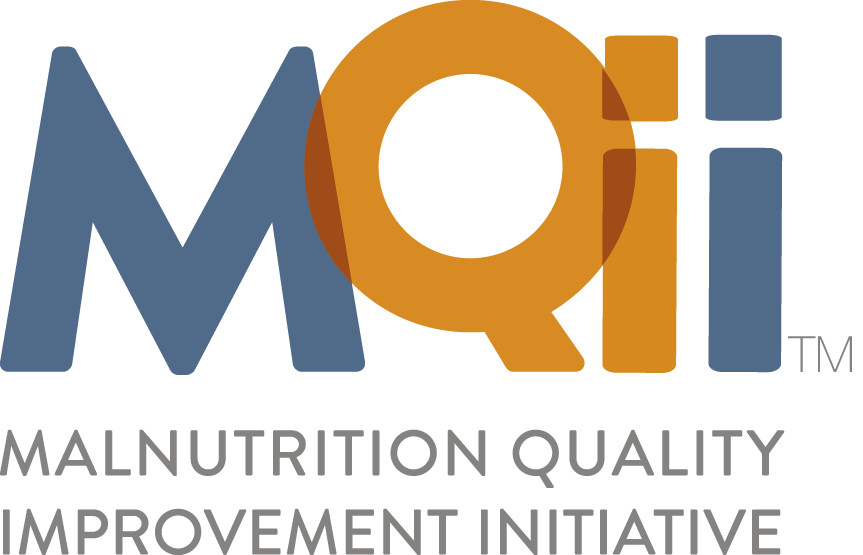Nutrition and Patient Safety: Helping Prevent Falls and Glycemic Events through Quality Nutrition Care
Ensuring patient safety is a foundational responsibility of hospitals. By definition, hospitalized individuals are in a compromised state of health that puts them at greater risk of adverse events like falls or severe blood glucose abnormalities. While there are many standard safety practices recommended for preventing these types of events, regulatory bodies are placing greater accountability on hospitals to prevent these events through quality measurement and pay for performance programs. Beginning in performance year 2026 two measures focused on adverse glycemic events will become mandatory under the Hospital Inpatient Quality Reporting (IQR) Program, while the “Falls with Injury” electronic Clinical Quality Measure (eCQM) is one of 12 options that hospitals must select to meet their eCQM reporting requirements. In addition, for hospitals participating in the new CMS Transforming Episode Accountability Model (TEAM), the “Falls with Injury” eCQM will be made mandatory beginning the second year of the program. With these requirements and the subsequent public reporting of results looming, this is a pivotal time to leverage an often-overlooked intervention to help prevent these adverse events: quality nutrition care. Proper nutrition is not only foundational for healing—it is also a critical factor in helping prevent falls and glycemic events, improving hospital quality performance, and reducing financial risk.
Malnutrition: A Key Contributor to Falls and Glycemic Instability
The relationship between malnutrition, falls, and abnormal blood glucose levels is well established—particularly among patients with diabetes or those at risk for hypoglycemia or hyperglycemia. Inadequate intake of calories, protein, vitamins D and B12, calcium, magnesium, and other micronutrients can lead to muscle weakness, impaired balance, cognitive decline, delayed wound healing—and increased susceptibility to falls.
For patients with diabetes or at risk for hypoglycemia and hyperglycemia—especially older adults—malnutrition further complicates glucose management by reducing counterregulatory responses or causing unpredictable absorption from enteral/parenteral feeds.
Nutrition’s Impact on Hospital Quality Performance
Because of nutrition’s beneficial impact in helping reduce risk of these adverse events, implementing the care processes measured by the Malnutrition Care Score (MCS) can not only demonstrate quality malnutrition care, it can help lead to improved scores on the glycemic event and falls measures.
Malnutrition directly affects both areas:
- Falls: Poor nutrition status increases falls risk by impairing mobility, cognition, and bone health.
- Glycemic Events: Irregular meal patterns, inadequate intake, and NPO status – common occurrences during hospitalization – can cause dangerous blood sugar fluctuations in hospitalized patients.
By integrating robust nutrition protocols—such as early malnutrition screening at admission, nutrition assessments for patients identified at malnutrition risk, documented malnutrition diagnosis when present, and nutrition care planning (including individualized meal planning, timely nutrition interventions, careful monitoring during NPO status, and interdisciplinary coordination)—hospitals can reduce inpatient falls with injury and lower rates of hypo/hyperglycemic episodes thereby improving performance on these eCQMs, in addition to the potential improvements in length of stay, readmissions, and patient satisfaction.
Positioning Nutrition Teams within Hospital-Wide Initiatives
While every staff member at a hospital contributes to improving patient safety, nutrition teams can play a key role in hospital-wide initiatives using nutrition as a safety intervention. Evidence-based strategies include:
- Screening & Assessment: All patients should be screened for malnutrition on admission, using validated tools such as the Malnutrition Screening Tool (MST) or Mini Nutritional Assessment (MNA). Patients identified at malnutrition risk should then receive a nutrition assessment. Patients at highest risk for falls (such as older adults and post-surgical patients) or those with diabetes who are vulnerable to glycemic instability should also be prioritized for a comprehensive nutrition assessment.
- Care Planning: Nutrition care is not solely the responsibility of the nutrition team. For successful implementation, nutrition professionals need to collaborate with the patient/family, nursing, pharmacy, endocrinology/diabetes educators, physical therapy, and care management to integrate individualized nutrition plans into broader falls prevention bundles or glycemic control protocols.
- Education & Training: Nutrition teams can support staff education on identifying signs of poor intake that may precede a fall or hypoglycemic event and provide guidance on diet appropriate snacks and meal timing for patients at risk of glycemic events.
- Data Monitoring & Feedback: Active participation in multidisciplinary rounds focused on adverse event review is recommended. Utilizing real-time data from eCQMs or MCS reports can help identify trends and target areas for quality improvement.
- Policy Development: Nutrition teams should advocate for standardized protocols regarding perioperative fasting/NPO orders, ensuring that “nothing by mouth” periods are minimized when possible and that appropriate alternatives are provided to reduce nutrition risk during hospitalization. Enhanced Recovery After Surgery (ERAS) guidelines can be beneficial in structuring protocols for early nutrition interventions after surgery.
Integrating nutrition professionals into these initiatives has been associated with improved patient outcomes, reduced adverse events such as falls and glycemic events, and improved performance on quality measures.
Conclusion
Quality nutrition care is a key strategy for helping prevent inpatient falls with injury and hypoglycemic and hyperglycemic events. As hospitals prepare for new mandatory measure reporting requirements, it is essential for nutrition professionals to help shape policies and workflows to improve patient safety.
Now is the time to act by implementing comprehensive nutrition screening, assessment, and intervention processes; collaborate across disciplines; monitor progress with quality tools and improve care processes accordingly and share your successes to support broader improvement.
